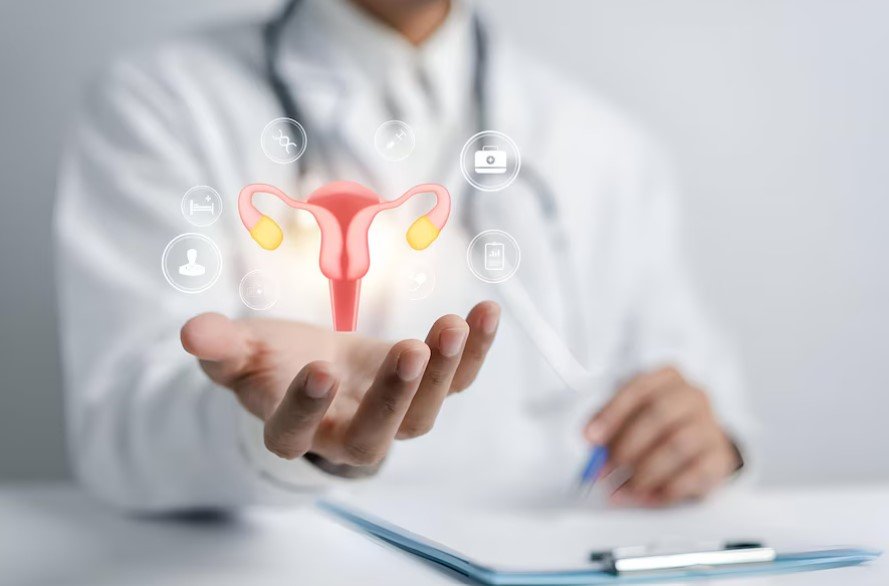Polycystic Ovary Syndrome (PCOS) is a common hormonal disorder affecting women of reproductive age. The condition affects approximately 1 in 10 women globally and is a leading cause of infertility. While PCOS is manageable, early diagnosis and treatment are crucial to alleviate symptoms and prevent long-term health complications. Dr. Shweta Mendiratta, the best PCOS doctor in Faridabad, specializes in providing personalized care to women dealing with this condition, offering effective treatment options and guidance for managing symptoms.
What is PCOS?
Polycystic Ovary Syndrome occurs when the ovaries produce an excessive amount of male hormones (androgens), which disrupt the normal ovulation process. This hormonal imbalance can cause various symptoms, including irregular periods, excessive hair growth, acne, and cysts on the ovaries. While the exact cause of PCOS remains unclear, genetics, insulin resistance, and inflammation are believed to play a role in the development of the condition.
Common Symptoms of PCOS
- Irregular Periods: One of the most common symptoms is infrequent or irregular menstrual cycles. Women with PCOS may have periods less than 9 times a year or may miss periods altogether.
- Excessive Hair Growth (Hirsutism): Elevated levels of male hormones can lead to excessive hair growth on the face, chest, back, and abdomen, a condition known as hirsutism.
- Acne and Oily Skin: Hormonal imbalance often leads to acne, especially on the face, chest, and upper back, along with an increase in oiliness of the skin.
- Ovarian Cysts: Polycystic Ovary Syndrome is characterized by the presence of multiple small cysts on the ovaries, visible through ultrasound. These cysts can interfere with normal ovulation, leading to infertility.
- Weight Gain and Difficulty Losing Weight: Many women with PCOS struggle with weight gain or difficulty in losing weight, primarily due to insulin resistance, which leads to increased fat storage.
- Thinning Hair: Another symptom is thinning or loss of hair on the scalp, a condition called androgenic alopecia, which is often associated with elevated male hormones.
Causes of PCOS
- Genetics: PCOS tends to run in families, suggesting a genetic link. Women with a mother or sister who has PCOS are more likely to develop the condition.
- Insulin Resistance: Many women with PCOS have insulin resistance, where the body’s cells do not respond properly to insulin. This can lead to increased insulin levels, which may stimulate the ovaries to produce more androgens.
- Inflammation: High levels of inflammation in the body can also contribute to hormonal imbalance and worsen symptoms of PCOS.
Treatment Options for PCOS
While there is no cure for Polycystic Ovary Syndrome, there are several treatment options available to manage the symptoms and reduce the risk of associated health issues, such as diabetes and heart disease.
- Medications for Regulating Periods: Birth control pills or hormone therapy are commonly prescribed to regulate menstrual cycles, reduce androgen levels, and control acne and excessive hair growth.
- Insulin-Sensitizing Medications: For women with insulin resistance, medications like Metformin can help improve insulin sensitivity and may assist with weight management.
- Hair Removal Treatments: For excessive hair growth, options such as laser hair removal or electrolysis can provide long-term solutions.
- Fertility Treatments: If infertility is a concern, medications like Clomiphene Citrate are used to stimulate ovulation. In some cases, IVF (In Vitro Fertilization) may be recommended.
- Lifestyle Changes: A healthy diet and regular exercise are essential in managing PCOS. Losing even a small amount of weight can help regulate menstrual cycles, improve insulin sensitivity, and reduce the risk of diabetes.
- Surgical Options: In severe cases, ovarian drilling (a procedure that destroys parts of the ovary to reduce androgen production) may be recommended.
Conclusion
Polycystic Ovary Syndrome is a complex condition that can affect many aspects of a woman’s life, from menstrual cycles to fertility and overall health. However, with the right care and treatment, women with PCOS can manage their symptoms effectively and live a healthy, fulfilling life. Dr. Shweta Mendiratta, the best PCOS doctor in Faridabad, offers expert care for women with PCOS, providing a comprehensive approach to treatment that includes medication, lifestyle changes, and emotional support.
If you’re experiencing symptoms of PCOS or have concerns about your reproductive health, don’t hesitate to consult Dr. Shweta Mendiratta for personalized advice and treatment options. Early intervention can make a significant difference in managing PCOS and improving your quality of life.
Book an appointment today and take the first step toward better health!



